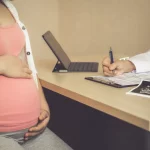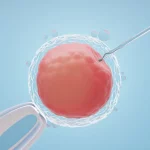
Egg donation is a remarkable process that allows individuals to help others fulfill their dreams of starting a family. However, the process involves certain requirements and regulations, particularly in states like New York. If you’re considering becoming an egg donor in New York, it’s essential to understand the eligibility criteria, legal aspects, and medical procedures involved. In this blog, we’ll delve into the requirements for egg donation in New York, providing you with a comprehensive guide to navigate through this altruistic journey.
Legal Framework in New York
Before diving into the specific requirements, it’s crucial to understand the legal framework surrounding egg donation in New York. The state has stringent regulations in place to ensure the safety and well-being of all parties involved, including the egg donor, intended parents, and resulting child.
Eligibility Criteria for Egg Donation
Age Requirements: Egg donors in New York typically need to be between the ages of 21 and 32. This age range is considered optimal for ensuring the quality and viability of the donated eggs.
Physical and Mental Health: Prospective egg donors must undergo a thorough medical and psychological evaluation to assess their physical and mental health. This evaluation helps ensure that the donor is in good overall health and capable of handling the emotional aspects of egg donation.
Non-Smoker: Smoking significantly affects egg quality and overall health. As such, most egg donation agencies in New York require donors to be non-smokers and free from substance abuse.
BMI Requirements: Egg donors typically need to have a body mass index (BMI) within a healthy range. This requirement helps minimize the risk of complications during the egg retrieval process.
Genetic Screening: Egg donors may be required to undergo genetic screening to identify any hereditary conditions or genetic disorders. This screening helps ensure the health and well-being of the resulting child.
Educational Background: While not always a strict requirement, many intended parents prefer egg donors with a certain level of education or specific academic achievements. However, this criterion may vary depending on individual preferences.
Medical Procedures Involved
Initial Screening: The egg donation process begins with an initial screening to determine the donor’s eligibility based on the criteria mentioned above. This screening may include blood tests, genetic screening, physical examination, and psychological evaluation.
Ovarian Stimulation: Once deemed eligible, the donor undergoes ovarian stimulation using fertility medications to stimulate the production of multiple eggs. During this process, regular monitoring is conducted through blood tests and ultrasounds to track follicle growth and hormone levels.
Egg Retrieval: When the eggs reach the appropriate stage of development, a minor surgical procedure known as egg retrieval is performed. This procedure is typically done under sedation and involves using a thin needle to collect the eggs from the ovaries.
Post-Retrieval Care: After the egg retrieval, donors may experience mild side effects such as cramping, bloating, or spotting. However, these symptoms typically subside within a few days, and donors are advised to rest and avoid strenuous activities during this time.
Legal Considerations
Legal Agreements: In New York, egg donation arrangements are governed by legal agreements between the egg donor and intended parents. These agreements outline the rights, responsibilities, and expectations of all parties involved, including compensation, confidentiality, and future contact arrangements.
Confidentiality: Egg donation in New York is typically conducted anonymously, with strict confidentiality maintained between the donor and intended parents. However, some donors and recipients may choose to have varying levels of contact or communication, which can be outlined in the legal agreement.
Parental Rights: According to New York state law, the intended parents who receive the donated eggs are considered the legal parents of any resulting child. As such, the egg donor relinquishes any parental rights or responsibilities associated with the donated eggs.
Additional Considerations for Egg Donation in New York
In addition to the fundamental eligibility criteria and legal aspects, there are several other important considerations for prospective egg donors in New York. These factors contribute to a more comprehensive understanding of the egg donation process, fostering transparency and informed decision-making.
Compensation and Expenses
While the altruistic nature of egg donation is paramount, it’s essential to recognize that many egg donors receive compensation for their time, effort, and any potential inconveniences during the process. In New York, the compensation for egg donation varies, and it is often influenced by factors such as the donor’s experience, the specific clinic or agency, and regional economic considerations. Prospective donors should familiarize themselves with the compensation structure and any associated expenses to make informed decisions.
Counseling and Support Services
Embarking on an egg donation journey can be emotionally complex. Recognizing this, many fertility clinics in New York offer counseling and support services to both egg donors and intended parents. These services aim to address any emotional challenges, provide guidance on the psychological aspects of the process, and facilitate communication between all parties involved. Prioritizing emotional well-being is crucial throughout the egg donation journey, and prospective donors are encouraged to take advantage of these support services.
Educational Resources and Information
An informed donor is an empowered donor. Fertility clinics and agencies in New York often provide educational resources, workshops, and informational sessions to help prospective donors understand the medical, legal, and emotional aspects of the egg donation process. These resources can include detailed brochures, webinars, and one-on-one consultations with healthcare professionals. By staying well-informed, egg donors can approach the process with confidence and clarity.
Follow-Up Care and Monitoring
After the egg retrieval process, ongoing care and monitoring are essential components of the egg donation experience. Clinics in New York typically maintain contact with egg donors to ensure their well-being and address any concerns or questions that may arise post-retrieval. This follow-up care contributes to a positive and supportive environment, allowing donors to feel valued and appreciated for their altruistic contribution.
Community and Networking Opportunities
Joining a community of egg donors can provide a sense of solidarity and shared experiences. In New York, there may be local or online communities where egg donors can connect, share insights, and offer support to one another. Networking opportunities can be invaluable for individuals navigating the various stages of the egg donation process, allowing them to exchange advice, tips, and encouragement.
Frequently Asked Questions (FAQs)
Q: What are the age requirements for egg donation in New York?
A: In New York, most fertility clinics prefer egg donors between the ages of 21 and 32. This age range is considered optimal for ensuring the quality and viability of donated eggs.
Q: Is genetic screening required for egg donors in New York?
A: Yes, genetic screening is a common requirement for egg donors. This screening helps identify any hereditary conditions or genetic disorders, ensuring the health and well-being of the resulting child.
Q: How much compensation do egg donors receive in New York?
A: Compensation varies, influenced by factors such as experience and clinic policies. In New York, donors typically receive compensation for their time, effort, and any potential inconveniences.
Q: Are egg donation arrangements confidential in New York?
A: Yes, egg donation arrangements in New York are typically conducted anonymously, with strict confidentiality maintained between the donor and intended parents.
Q: What legal rights do egg donors have in New York?
A: According to New York state law, once the egg donation process is complete, the intended parents are considered the legal parents of the resulting child. Egg donors relinquish any parental rights or responsibilities associated with the donated eggs.
Conclusion
Becoming an egg donor in New York is a meaningful and altruistic decision that can positively impact the lives of individuals struggling with infertility. By understanding the requirements, procedures, and legal aspects involved, prospective donors can embark on this journey with confidence, knowing they are making a significant difference in the lives of others. If you’re considering egg donation in New York, it’s essential to consult with a reputable fertility clinic or agency like Eggdonors4all to guide you through the process and ensure a positive experience for all parties involved.
By following these guidelines and fulfilling the necessary requirements, you can contribute to the miracle of life and help fulfill the dreams of hopeful parents across New York state.
Should you have any questions or concerns as an intended parent, please do not hesitate to contact us at 212-661-7177 or info@eggdonors4all.com

Dr. Veera Saghar
As an Egg Donor Coordinator, she plays a critical role in our company. Her background as a medical graduate from ISRA UNIVERSITY in Pakistan provides us with a solid foundation in the medical sciences. She has seven years of clinical experience practicing in the USA. This has given her firsthand experience when collaborating with patients and their families.
She is responsible for managing the process of egg donation from start to finish. We identify and screen potential egg donors.











